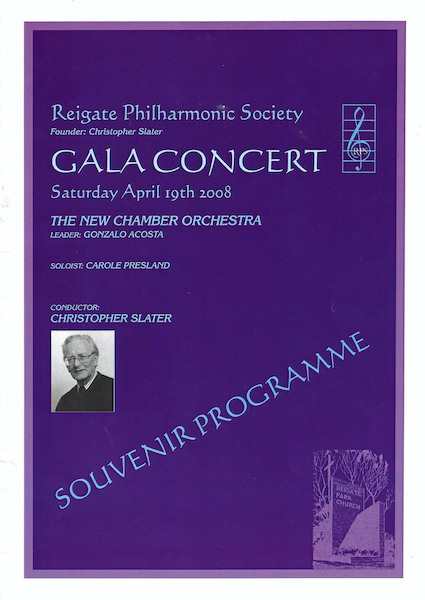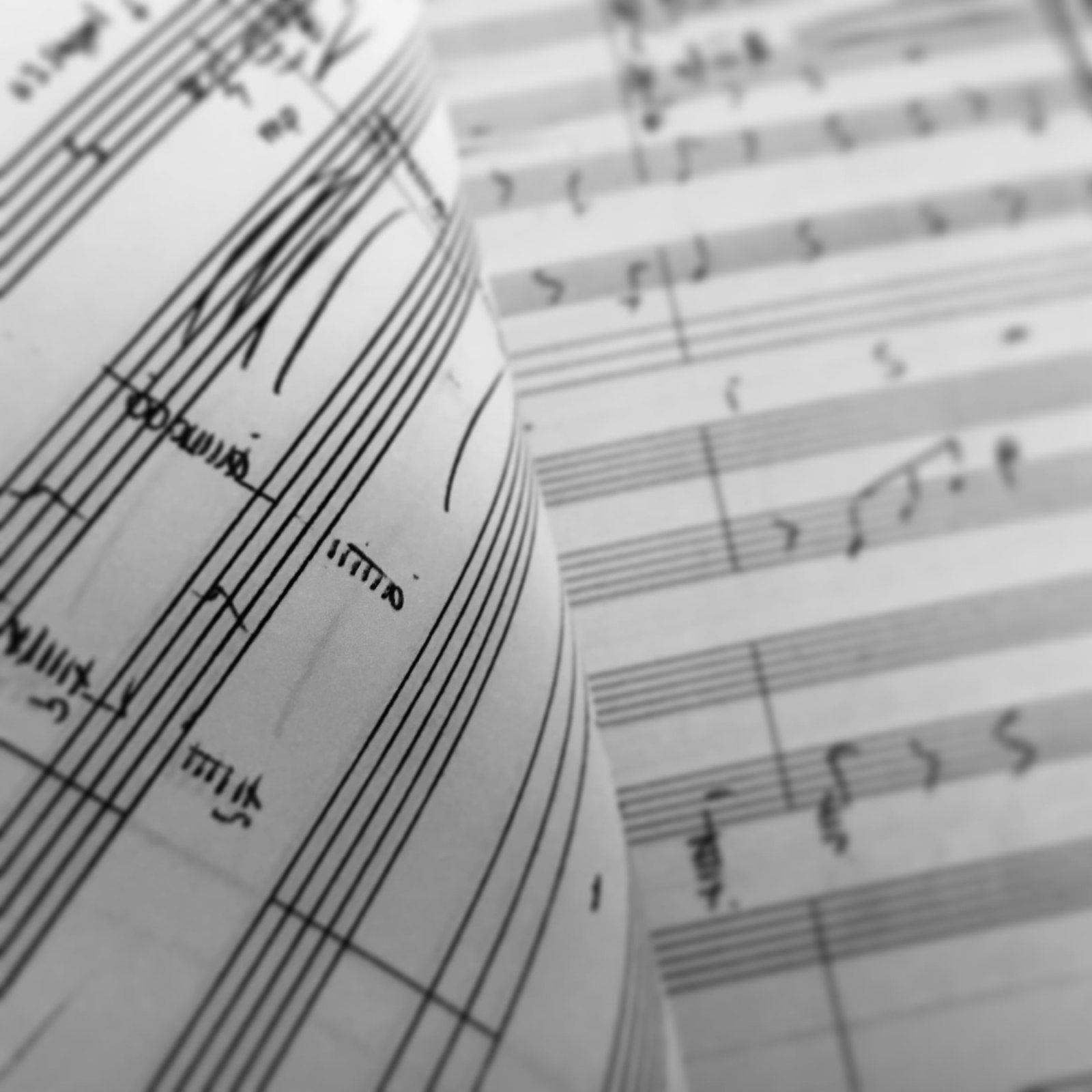I wrote this for inclusion in the Programme for the final Reigate Philharmonic Society concert back in 2008. The concert included the performance of a new work I had written and I was reflecting on the business and purpose of the music composer in the present day and times.
Mark Slater
A commission normally starts with a “what” and a “how”, rather than a “why”. Although I’d like to think that there is a difference between the music I’ve composed for tonight and music I would compose for a film or commercial, aren’t they really just points on a continuum of compromise between the requirements of the brief (or commission) and the composer’s freedom of expression?
No my question is more about the value of music in society. Has it become, as Harnoncourt puts it, mere ornamentation? [Nikolaus Harnoncourt: Baroque Music Today: Music as Speech p.12 (1982)]
With our basic needs, at least in this part of the world, pretty much spoken for, is it just something higher up the hierarchy; something to occupy and entertain us, funded by the good fortune of our high levels of disposable wealth?

While I’ve been fortunate as a composer to get commissions in the commercial world, I have also wrestled with that morally. Creative expression can become apathetic and cynical. Music is often called upon to “get the job done” and that job is selling something – and I don’t think there is a vast distinction between selling a car, selling a dramatic scene in a film, selling a singer, band or records. It is often subservient to a larger idea of “pressing the right buttons” with people and that is usually about generating profit.
I’m aware that this concert marks the winding up of the Reigate Philharmonic Society. The RPS with its 45-year history could be viewed as an attempt to bring live music into the local community, making it more accessible, at the same time supporting artists and performers like me. But its present end could be seen as a sign that the kind of community necessary to preserve and maintain this sort of thing doesn’t exist even in spite of generous funding and continuing support from the Humphrey Richardson Taylor Charitable Trust and the Reigate and Banstead Arts Council. Whither goest the composer and musician? Well, inevitably, where the money is, but also into apathy and cynicism (q.v.).
So, why compose? Music, not unlike other creative arts, is abstract. I used to toy with the question whether it was possible to imagine something for which we did not have a word. I believe this is the power of creative arts. They fill the gaps between words and can encompass a range of sensory experience that we can only palely attempt to describe in absolute dictionary terms. Even with literature and poetry, I would say that is not actually the words themselves, but the space around them it creates in our minds wherein lies the magic.
This seamless multi-dimensional realm of consciousness is spattered with word-points, which we sub-vocalize with varying degrees of attention. In fact the more we tie down specifics using words, e.g. as we try to do with law and statutes, the more we depart from accurately describing the full picture. I think there is an interesting parallel here with matter at quantum levels, which also suffers from a kind of observational interference.
However the more I reflect upon music, the more it seems that it serves most naturally in an accompanying role. It is a curious thing that we so readily accept music soundtracks to film and drama. Opera is really drama with music accompaniment. Songs are words with music. And when we just have music alone, I wonder if it isn’t still accompanying, but this time it’s an accompaniment to our conscious self. In another sense, it is apt to describe music as a narrative in its own right. Unlimited by words, it is a powerful one, able to play seamlessly alongside the abstract stream of consciousness.
Long before our basic human needs were so efficiently provided by our social organization, we had music and art. I speculate that even before sophisticated language, we would have had music, which would have served as an important tool for communication, accompanying dance, imagery and acting out of scenes, which would educate and bring together people in a community.
And perhaps it is just as important today that we continue to support artists and performers to express themselves honestly, without commercial expectations. A subtle recognition that while we debate with words how to solve the problems in the world, that the potential of the arts to contribute to that debate in its abstract way, is overlooked at our peril.
Art is moral passion married to entertainment. Moral passion without entertainment is propaganda, and entertainment without moral passion is television.
Rita Mae Brown


You are a purist my friend. Like a bluesman that knows the blues, a composer that knows the music.